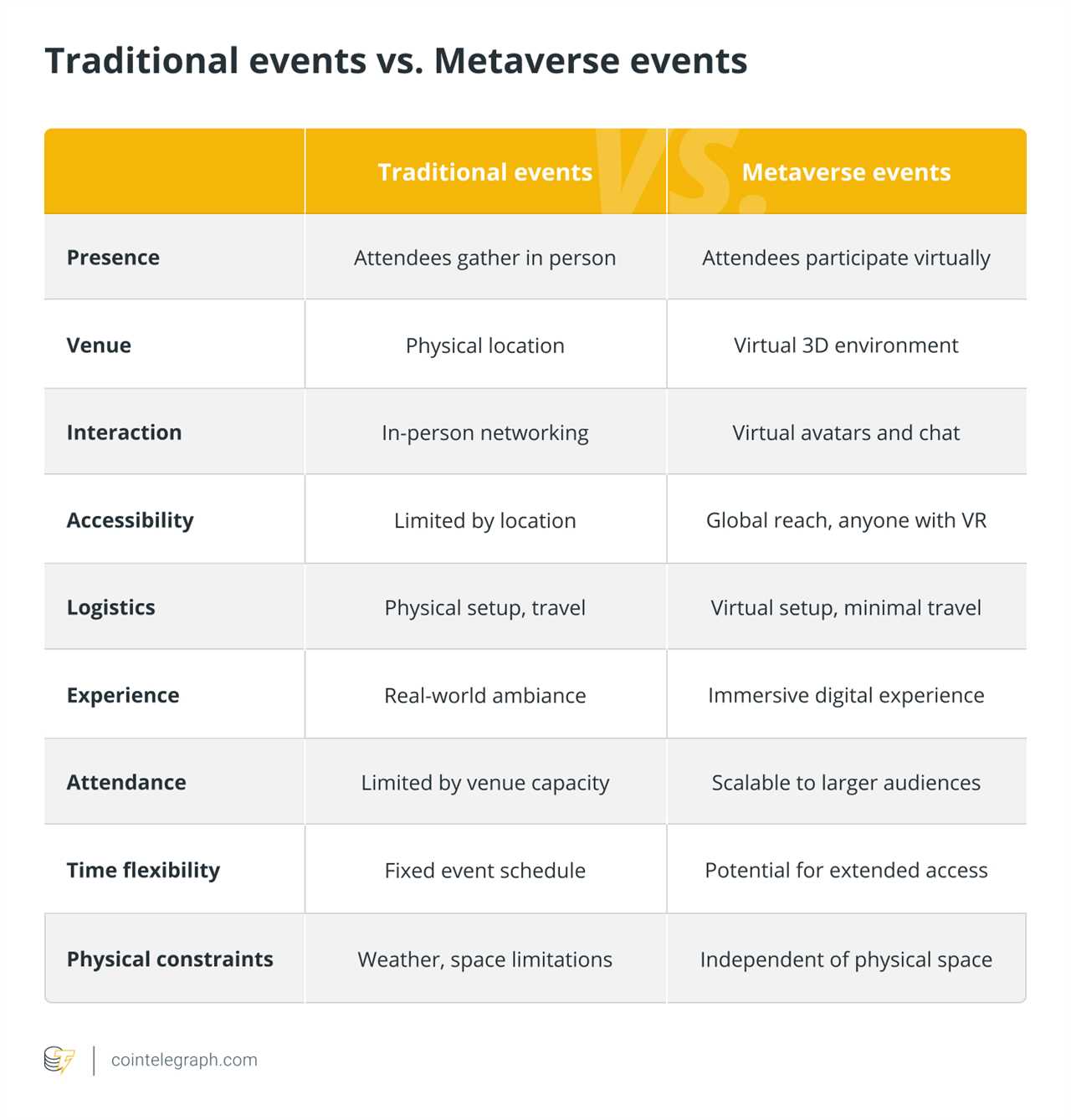
Event Management in the Metaverse
The planning, coordination, and execution of events in virtual and augmented reality environments are known as event management in the metaverse. The metaverse is a virtual shared space that combines physical reality with virtual improvements, including augmented reality (AR) and virtual reality (VR).
Steps to Host an Event in the Metaverse
Hosting an event in the metaverse involves several key steps to create an engaging digital experience. These steps include defining the event concept and goals, selecting the right platform, creating content, and executing the event in a virtual setting. Post-event activities, such as gathering feedback and maintaining connections, are also crucial.

Step One: Define the Event Concept and Goals
The pre-event planning phase is essential for organizing a successful metaverse event. This phase involves setting clear goals, assembling an expert team, selecting the right platform, and developing an interesting event concept. Thorough groundwork is necessary for successful event implementation in the dynamic and immersive metaverse.
Step Two: Technical Setup
The technical setup step transforms the event concept into a functional virtual experience. This includes setting up the selected metaverse platform, creating avatars or digital representations, and developing the virtual space. It's also crucial to integrate interactive elements, such as live chat and multimedia presentations, to engage the audience. Ensuring audio-visual quality and resolving technological issues is essential for a seamless experience.
Step Three: Marketing and Promotion
During the marketing and promotion phases, the focus shifts to creating buzz and attracting attendees. It's important to use both conventional and metaverse-specific marketing platforms. Captivating event content, trailers, teasers, and social media channels can build interest and increase reach. Implementing ticketing systems and tier-based access alternatives can also encourage attendance.
Step Four: Event Execution
The event execution phase is where meticulous planning comes together to create an immersive experience. Attendees communicate, network, and participate in events, while presenters conduct speeches or performances within the virtual setting. Real-time technical support and monitoring engagement data are essential for optimizing the experience.
Step Five: Post-Event Activities
Once the event is over, the post-event activities phase begins. This involves gathering input from attendees, sharing highlights or recordings of sessions, and maintaining relationships developed during the event through follow-up sessions or networking opportunities.
How Much Does It Cost to Host an Event in the Metaverse?
The cost of hosting an event in the metaverse varies depending on factors such as the complexity of the event, the selected platform, the number of attendees, and the desired level of customization. Expenses include investments in 3D modeling, interactive features, audio-visual gear, streaming services, tech support, and marketing operations. Careful budget preparation and an analysis of potential revenue streams are necessary to gauge the financial feasibility of the event.
Traditional Events vs. Metaverse Events
Traditional events and metaverse events offer different experiences. Traditional events involve physical gatherings, face-to-face interactions, and geographical restrictions. In contrast, metaverse events take place in virtual 3D settings, offering an immersive digital experience without geographical boundaries. Metaverse events showcase the evolving landscape of event hosting in an interconnected world.
Risks Involved in Hosting Virtual Event Spaces in the Metaverse
Hosting virtual event spaces in the metaverse comes with risks, including harassment, privacy violations, technical difficulties, and misunderstandings. To create a welcoming environment, organizers should develop rules of behavior, practice strong moderation, emphasize data security, and provide user-friendly information. Addressing these risks proactively promotes participation, diversity, and a safe educational experience for all participants.
Did you miss our previous article...
https://trendinginthenews.com/crypto-currency/digital-currency-group-reaches-agreement-with-creditors-of-genesis-subsidiary






